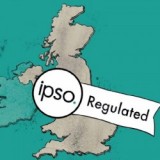 A regional daily wrongly suggested there was a connection between graffiti and an attack on a man who later died, the press watchdog has ruled.
A regional daily wrongly suggested there was a connection between graffiti and an attack on a man who later died, the press watchdog has ruled.
The Independent Press Standards Organisation has upheld a complaint against the Liverpool Echo after it reported graffiti describing Terry Dunn as “a grass” had appeared “just before” he was attacked with a golf club.
Mr Dunn died after the attack, but the Echo’s coverage of his death prompted a complaint to IPSO from his brother Ian Dunn, who said the graffiti had actually appeared four months before the incident.
IPSO found the error represented a failure to take care not to publish inaccurate information, following an investigation into the matter.
Complaining to IPSO under Clause 1 (Accuracy), Clause 2 (Privacy) and Clause 4 (Intrusion into Shock and Grief) of the Editors’ Code of Practice, Mr Dunn said the graffiti had misleadingly suggested that there was a connection between the two events, and also said the cause of his late brother’s death had been reported inaccurately, along with the location of the attack.
He added the Echo had named his brother against the instructions of Merseyside Police and said nasty comments had been posted after comment boxes were left open on the online version of the story.
Mr Dunn further claimed the reporter who wrote the story had been very insensitive in direct correspondence, and had lacked empathy and laughed at him when he had spoken about the comments posted about the article.
Denying any breach of Code, the Echo said it had just reported on the graffiti and the attack without saying that they were related, but said police confirmation that there was no connect demonstrated that there had been speculation that the two events were connected.
The Echo explained that it had reported that the graffiti had appeared “one month” prior to the attack because this was said during a 40-minute interview with the late Mr Dunn’s friend, notes of which were supplied to IPSO, while it had reported the cause of death as a heart attack because this is what the reporter had been told during this discussion.
It offered to amend the cause of death in the online story, and also acknowledged it had reported the attack had happened on Wapshare Lane rather than Wapshare Road – a fact the Echo amended as soon as it was aware of the error.
The late Mr Dunn’s name was in the public domain prior to publication, and the Echo said Merseyside Police was also aware of its plan to publish this information.
The Echo apologised if Mr Dunn felt the reporter had lacked empathy, but said it had been assured by the journalist in question that he had acted professionally and sensitively and had not at any point laughed at him.
During IPSO’s investigation the Echo offered to remove the word “just” from the first paragraph of the online story to make clear that the attack had not occurred immediately after the appearance of the graffiti, and further offered to clarify the time at which the graffiti appeared.
IPSO considered that the Echo’s reliance solely upon the account of the late Mr Dunn’s friend represented a failure to take care not to publish inaccurate information, while the inaccurate report of the timing of the attack by reference to the appearance of the graffiti represented a significant inaccuracy because it suggested a connection between the graffiti and the attack.
The Echo was cleared on the other aspects of Mr Dunn’s complaint.
The complaint was upheld, and the full adjudication can be read here.





 Follow HTFP on Twitter
Follow HTFP on Twitter
A disgraceful piece of journalism – especially from a paper which continually accuses The Sun of demeaning journalistic standards.
Report this comment